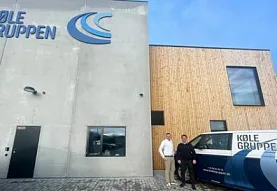Advanced Cooling Technologies, Inc. (ACT) has announced exceeding $200 million in sales from products developed with technologies initiated by its SBIR (Small Business Innovation Research) and STTR (Small Business Technology Transfer) programs. Jens Weyant, Vice President for Product and Technology Development at ACT, highlighted the company's origins as a research-driven organization, stating, "Our R&D team acts as our company's innovation engine, driving new product opportunities and contributing significantly to our growth."
In recognition of its technical innovations and economic contributions, ACT received a Tibbets award from the Small Business Administration in 2011. Bill Anderson, ACT's Chief Engineer for R&D, remarked, "Our products, based on SBIR & STTR programs from various government departments, showcase our extensive research capability."
Key technologies developed through these programs include:
- Constant Conductance Heat Pipes (CCHPs) initially developed for NASA Johnson and expanded to products like Loop Heat Pipes (LHPs) and Variable Conductance Heat Pipes (VCHPs).
- Space Copper-Water Heat Pipes developed under NASA Marshall Phase II SBIR.
- ICE-Lok, an improved wedgelock, created under an Air Force SBIR.
- Pumped Two-Phase cooling products from an NSF SBIR.
- Thermal storage products developed on an MDA SBIR.
ACT continues to push the boundaries of thermal technology to meet diverse customer needs in sectors such as space, energy, medical, and defense. R&D Manager Srujan Rokkam noted the expanding focus areas, including Data Center Thermal Management, Advanced Modeling, Electric Aircraft Thermal Management, and more. Rokkam emphasized, "What makes ACT R&D exciting is realizing the transition of new technologies into products and their application in real-world systems."




